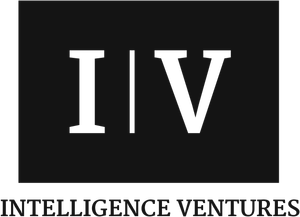Introducing Intelligence Ventures: Empowering AI-Driven Healthcare Innovation
The AI Revolution has Arrived
The birth of the world’s first steam engine signaled the onset of the Industrial Revolution, a time that boosted human productivity and triggered social transformation at an astonishing speed. Today, we are at a similar juncture, witnessing the relentless surge of Artificial Intelligence (AI) and Machine Learning (ML) in various industries, most notably Biotechnology and Healthcare.
Intelligence Ventures is an emerging venture capital firm strategically situated at the nexus of AI/ML and Healthcare. Our focus is on nurturing innovative startups, stimulating their growth, and fostering the next wave of industry leaders. Our premier fund, AI Health Fund I, is dedicated to companies that harness the power of AI to improve efficiency and tackle computationally intractable challenges, thereby revolutionizing the way we develop new drugs, facilitate their clinical trials, and diagnose and treat patients. Unconstrained by industry verticals (i.e., we invest across all sectors), we firmly believe in the potential of generative AI and bespoke ML models to spark innovation in biotech, pharma, medtech, and diagnostics. We primarily invest in pre-seed, seed, and Series A companies within the United States.
Demystifying AI/ML in Healthcare
Throughout the COVID pandemic, we saw the initial applications of AI as Johnson & Johnson employed it to track disease spread, predict hotspots, and expedite clinical trial recruitment for vaccine development. ML, a subset of AI, encompasses computer algorithms that allow machines to learn from data, often rivaling or even exceeding human intelligence and problem-solving capabilities. In the Healthcare/Biotech arenas, we anticipate that this technology will significantly alter pharmaceutical drug development, medical imaging diagnostics, electronic health record management, and clinical trial analysis and recruitment.
Pharmaceutical Drug Development
Drug development (R&D) marks the initial phase of pharmaceutical companies' journey to research and identify potential treatments for diseases. However, it is currently the most inefficient and costly phase. In 2019, pharmaceutical companies allocated roughly 25% of their revenue to R&D, approximately 10 times what the industry spent in the 1980s, after adjusting for inflation. AI technology can play a transformative role in drug development, assisting in target identification, molecular engineering, protein structure modeling, and kinetics & toxicity prediction. In 2020, Exscientia pioneered the introduction of the first AI-developed drug, which entered clinical trials for obsessive-compulsive disorder treatment.
Medical Imaging Diagnostics
Medical imaging, especially in Radiology, is another critical field for AI application in Healthcare. To date, companies like GE Healthcare, Via.zi, and Ezra have received FDA clearance for AI/ML-enabled imaging-reconstruction algorithms. These algorithms not only enhance the quality of MRI images but also aid clinicians in detecting cancer and numerous other diseases. Astonishingly, when it comes to medical imaging diagnostics, AI can outperform physicians in terms of both speed and accuracy.
Electronic Health Records (EHR) Management
Electronic Health Records (EHR) are a primary cause of physician burnout, largely due to the administrative burden of organizing medical records into readable notes, which significantly adds to their regular workload. Additionally, EHRs are typically stored as lengthy chart notes that cannot be easily interpreted by computer-based algorithms. However, with the development of large language models like ChatGPT and natural language processing, there is enormous potential for startups to cooperate with doctors and mine more insights from the unstructured EHR data. Google’s Med-PaLM2 chatbot is the first algorithm to pass the US medical licensing exam and is currently being tested in collaboration with the Mayo Clinic research hospital.
Clinical Trial Recruitment
Presently, clinical trials pose a significant hurdle for pharmaceutical companies. For FDA approval, companies typically allocate 2-3 years for clinical trial recruitment. However, 86% of clinical trials fail to meet recruitment targets, leading to a potential revenue loss of $0.6-8M per day due to launch delays. During the COVID pandemic, we witnessed Johnson & Johnson collaborating with MIT scientists developed a ML leveraging epidemiological infectious disease models and COVID global surveillance, enabling swift fulfillment of recruitment requirements. Companies likeThe WCG and Deep 6 AI team also collaborated to increase the speed and diversity of clinical trial recruitment.
AI/ML Healthcare Market Trends
We believe that the “inflection point” in the drug discovery industry, driven by AI/ML technology, has arrived. According to Precedence Research, the AI market in Healthcare is projected to surpass $187 billion by 2023 and will grow at a CAGR of 37% over the next decade, with rising investments in research, drug discovery, drug development , and clinical trials..
Data fuels AI/ML. The fusion between computer science and bioscience becomes more interconnected as vast volumes of data become accessible within the biotech/healthcare space. For AI in drug development, next-generation sequencing generates more data for precision medicine. In EHR and hospital management AI, natural language processing compiles unstructured data into meaningful insights. Additionally, digital wearables and healthcare apps provide a new means to remotely collect vital biometric data in the clinical trial AI domain.
So, how crucial do you think data is to AI in Healthcare? What other emerging areas in Healthcare/Biotech will be driven by AI/ML technologies? We invite you to join our conversation, and we encourage you to subscribe to our weekly blog using the button below. Stay tuned for future posts where we'll delve deeper into these topics.
Sources:
